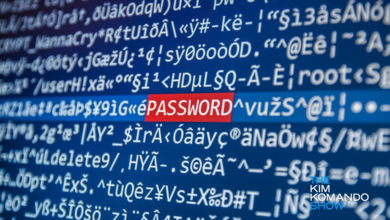Quantum Computing: What It Means for Everyday Tech
Quantum computing will revolutionize tech with ultra-fast processing, security, and AI breakthroughs. Discover how it will transform everyday life.

Quantum computing is set to redefine the technological landscape, bringing capabilities that far surpass what traditional computers can achieve. Unlike classical computers that process information in binary bits (0s and 1s), quantum computing leverages qubits, which can exist in multiple states simultaneously through superposition and entanglement. This allows quantum computers to solve complex problems from drug discovery to climate modeling in seconds, tasks that would take conventional supercomputers thousands of years. As this technology matures, its integration into everyday tech could revolutionize industries, enhance cybersecurity, and accelerate scientific breakthroughs, making what was once science fiction a tangible reality.
The implications of quantum computing extend far beyond theoretical research, promising transformative changes in how we interact with technology daily. From ultra-fast data processing in smartphones to unbreakable encryption for online transactions, the potential applications are vast. While still in its early stages, rapid advancements suggest that quantum computing will soon move from labs to mainstream adoption, reshaping everything from healthcare to artificial intelligence. This is explores how this groundbreaking technology works, its real-world applications, and what it means for the future of everyday tech.
Quantum Computing
The Basics of Quantum Mechanics in Computing
Traditional computers process information using bits, which are binary and can only be in a state of 0 or 1. Quantum computing, however, leverages qubits that exploit quantum mechanical phenomena. A qubit can be 0, 1, or both at the same time a property known as superposition. This allows quantum computers to perform multiple calculations simultaneously, drastically increasing their processing power.
Entanglement
Another key principle is entanglement, where qubits become interconnected, and the state of one directly influences another, no matter the distance between them. This enables faster and more efficient data transfer, making quantum computers ideal for solving complex optimization problems, simulating molecular structures, and cracking encryption codes that would be impossible for classical machines.
How Quantum Computers Differ from Classical Computers
Classical computers excel at linear, sequential tasks like running software, browsing the internet, or handling spreadsheets. Quantum computers, on the other hand, thrive in parallel processing, making them superior for tasks involving massive datasets, probabilistic models, and cryptography. For example, while a classical computer would check each possible solution one by one to crack a password, a quantum computer could evaluate all possibilities at once using Grover’s algorithm, reducing the time required exponentially. Similarly, Shor’s algorithm can factor large numbers rapidly, threatening current encryption methods while simultaneously paving the way for quantum-secure cryptography.
Applications of Quantum Computing in Everyday Tech
Revolutionizing Healthcare and Medicine
One of the most promising applications of quantum computing is in drug discovery and medical research. Simulating molecular interactions is incredibly complex for classical computers, but quantum systems can model chemical reactions with high precision. This could lead to faster development of life-saving drugs, personalized medicine, and breakthroughs in treating diseases like cancer and Alzheimer’s.
Enhancing Artificial Intelligence and Machine Learning
AI and machine learning rely on processing vast amounts of data to recognize patterns and make predictions. Quantum computing can accelerate training processes, enabling more sophisticated AI models that improve natural language processing, image recognition, and autonomous systems. This could lead to smarter virtual assistants, more accurate medical diagnostics, and self-driving cars that make real-time decisions with near-human intuition.
Strengthening Cybersecurity
While quantum computers pose a threat to current encryption methods, they also offer solutions. Quantum key distribution (QKD) enables ultra-secure communication by detecting any eavesdropping attempts, ensuring unhackable data transfer. Governments and corporations are already investing in post-quantum cryptography to safeguard sensitive information against future quantum attacks.
Optimizing Financial Systems
Banks and financial institutions could use quantum computing for risk assessment, fraud detection, and high-frequency trading. By analyzing market trends and economic variables in real time, quantum algorithms could optimize investment strategies, detect anomalies faster, and reduce financial risks.
Transforming Logistics and Supply Chains
From route optimization to inventory management, quantum computing can solve logistical challenges more efficiently. Companies like FedEx and Amazon could use quantum algorithms to minimize delivery times, reduce fuel consumption, and streamline global supply chains, leading to cost savings and improved customer satisfaction.
Challenges and Limitations
Despite its potential, quantum computing faces significant hurdles. Qubits are highly unstable, prone to errors from environmental interference (a problem called decoherence). Researchers are working on error-correction techniques and more stable qubit designs, but practical, large-scale quantum computers are still years away. Additionally, the technology requires extreme cooling (near absolute zero) to function, making it expensive and energy-intensive. Widespread adoption will depend on overcoming these technical and economic barriers.
The Future of Quantum Computing in Everyday Life
Revolutionizing Personal Devices
Quantum computing will eventually trickle down to consumer electronics, making smartphones, laptops, and wearables exponentially more powerful. Future devices may incorporate quantum co-processors to handle complex AI tasks, real-time language translation, and advanced biometric security—all while consuming minimal energy.
Transforming Healthcare and Medicine
From personalized drug discovery to ultra-precise diagnostics, quantum computing will enable medical breakthroughs at unprecedented speeds. Doctors could simulate a patient’s unique biology to predict treatment outcomes, while AI-powered quantum systems could detect diseases like cancer at their earliest stages.
Ultra-Secure Communication Networks
Quantum encryption will make hacking obsolete by leveraging quantum key distribution (QKD). Future internet infrastructure may rely on quantum-secured networks, ensuring that financial transactions, private messages, and government communications remain completely unhackable.
Smarter Cities and Autonomous Transportation
Quantum-powered AI will optimize traffic flow, energy grids, and public transportation in real time. Self-driving cars could use quantum processors to make split-second decisions, drastically reducing accidents and improving efficiency in urban mobility.
Accelerating Scientific and Climate Research
Quantum simulations will allow scientists to model molecular interactions, climate patterns, and renewable energy solutions with near-perfect accuracy. This could lead to breakthroughs in fusion energy, carbon capture, and materials science helping combat climate change faster than ever before.
Supercharged Artificial Intelligence
Machine learning models will train millions of times faster, enabling AI to reach human-like reasoning. Virtual assistants, content generation, and predictive analytics will become so advanced that they seamlessly integrate into daily decision-making.
The Rise of Hybrid Computing Systems
Before full-scale quantum computers become mainstream, hybrid classical-quantum systems will bridge the gap. Businesses and consumers will access quantum processing via cloud platforms, allowing industries to gradually adapt without replacing existing infrastructure.
Challenges Before Mass Adoption
Despite its potential, quantum computing must overcome decoherence, error rates, and cooling requirements before becoming a household technology. Governments and tech giants are investing heavily to solve these issues, but widespread adoption may still take another decade.
Read More: Top Wearables That Are Redefining Health Tracking
Conclusion
Quantum computing represents one of the most transformative technological leaps of our time, promising to redefine what’s possible across every sector of modern life. As this revolutionary technology continues to evolve, we stand at the threshold of a new era where problems once considered unsolvable—from personalized medicine to climate modeling may finally find their answers. While mainstream adoption of quantum computing still faces challenges like qubit stability and error correction, the rapid pace of innovation suggests these hurdles will be overcome sooner than we imagine, ushering in unprecedented advancements in computing power and efficiency.
The integration of quantum computing into everyday technology won’t happen overnight, but its gradual emergence will fundamentally alter our digital landscape. From securing our online transactions with unbreakable encryption to powering AI systems with human-like reasoning capabilities, quantum technology will quietly revolutionize the tools we use daily. As we prepare for this quantum future, one thing is certain: the technologies we take for granted today will soon seem primitive compared to what quantum computing will make possible tomorrow, forever changing our relationship with the digital world.
FAQs
How does quantum computing differ from traditional computing?
Quantum computers use qubits that leverage superposition and entanglement, enabling them to process multiple calculations simultaneously, unlike classical binary bits.
What are the real-world applications of quantum computing?
It can revolutionize drug discovery, AI, cybersecurity, financial modeling, and logistics by solving complex problems exponentially faster.
Is quantum computing a threat to cybersecurity?
Yes, it can break current encryption, but it also enables quantum-safe cryptography to protect future data.
When will quantum computers be widely available?
Large-scale, error-free quantum computers may take another 10-20 years, but early commercial applications are already emerging.
Can quantum computing replace classical computers?
No, they serve different purposes—quantum computers will complement classical systems for specialized tasks.











